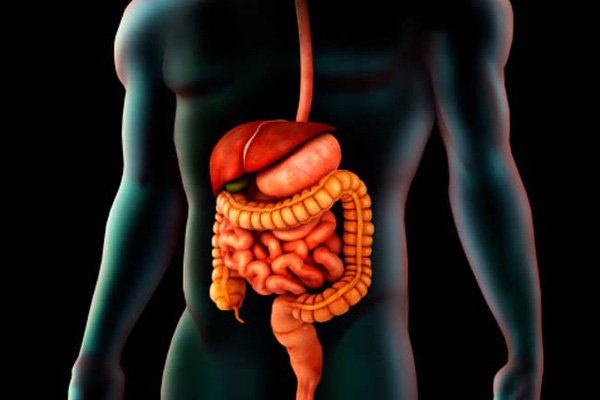Endoscopic esophagectomy for the treatment of esophageal cancer
In the treatment methods for esophageal cancer, endoscopic esophagectomy is a radical and effective method of treatment that helps patients reduce pain and heal wounds quickly.
1. What is esophageal cancer?
Esophageal cancer is a malignant disease caused by cells in the esophagus dividing uncontrollably, including two main types of cancer, squamous cell carcinoma and adenocarcinoma.
Squamous cell carcinoma originates in the epidermal cells in the wall of the esophagus, and is most commonly located in the upper and middle parts of the esophagus. Adenocarcinoma originates in the glandular cells of the esophagus, usually located in the lower esophagus. Esophageal cancer can invade outside the esophagus, metastasize through the lymphatic system and to other organs, such as liver, spectrum, bone, brain,... In Vietnam, esophageal cancer is one of the most common cancers. The five most common types of gastrointestinal cancer.
Squamous cell carcinoma originates in the epidermal cells in the wall of the esophagus, and is most commonly located in the upper and middle parts of the esophagus. Adenocarcinoma originates in the glandular cells of the esophagus, usually located in the lower esophagus. Esophageal cancer can invade outside the esophagus, metastasize through the lymphatic system and to other organs, such as liver, spectrum, bone, brain,... In Vietnam, esophageal cancer is one of the most common cancers. The five most common types of gastrointestinal cancer.

Ung thư thực quản là loại ung thư đường tiêu hóa thường gặp
2. Laparoscopic esophagectomy to treat esophageal cancer
In the treatment of esophageal cancer, surgery is the basic and most important method, other treatment methods such as chemotherapy or radiation therapy are only adjuvant in pre- and postoperative.
Laparoscopic esophagectomy has great advantages in performing lymph node dissection, a prominent surgical method in the treatment of esophageal cancer.
Indications of thoracoscopic esophagectomy:
thoracic esophageal cancer in the middle 1⁄3, at stage T3 or less. Cancer of the thoracic oesophagus, position 1⁄3 lower, stage T4a or less. Contraindications of thoracoscopic esophagectomy:
Cancer of the esophagus in the neck and chest in the upper 1⁄3 position. Patients with severe comorbidities, such as: severe respiratory failure, heart failure, liver failure, kidney failure, progressive pulmonary tuberculosis, diabetes,... Patient over 75 years old, in poor condition exhausted.

Bệnh nhân lớn tuổi sức khỏe yếu không được chỉ định phẫu thuật
Patients with contraindications to laparoscopic surgery in general: There is a history of peritonitis requiring surgery, intestinal obstruction, ascites, umbilical hernia, abdominal wall hernia, local infection of the abdominal wall, pathology of coagulopathy,... Patients with contraindications to peritoneal inflation: Coronary artery disease, heart valve disease, bronchial heart disease. The patient did not agree to undergo thoracic endoscopic esophagectomy.
3. Preparation before performing esophagectomy through thoracoabdominal
Before being performed endoscopic esophagectomy to treat esophageal cancer, the patient needs to complete the following issues:
Be explained and consulted by the doctor about the current medical condition. As well as the endoscopic esophagectomy method for cancer treatment, understand the advantages and limitations of this treatment for esophageal cancer. Complete basic tests, endoscopy, ultrasound, X-ray, computed tomography chest - abdomen and other necessary tests and techniques. The patient's condition was well nourished to ensure a satisfactory response to the surgery, favorable pre-anesthetic examination results. Use prophylactic antibiotics before surgery.

Bệnh nhân được tư vấn và kí cam kết trước khi tiến hành phẫu thuật
4. Monitoring and taking care of patients after performing esophagectomy through thoracoabdominal
After performing thoracoscopic esophagectomy to treat esophageal cancer, the patient should:
Monitor the whole condition, monitor vital signs. Monitor surgical drainage (pleural drainage, neck drainage,...) Use of antibiotics after surgery. Replenish water and electrolytes. Nutrition helps in recovery.
5. Possible risks and complications when performing esophagectomy through thoracotomy
Any surgery has certain risks and complications, and for esophagectomy through thoracoscopy, the risks and complications may include:
Esophageal perforation. Bronchial tear. Injury to major blood vessels. Bleeding after surgery. Respiratory failure. Leaky connection, probing for maintenance. If you experience any of these side effects, contact your doctor immediately. Any questions that need to be answered by a specialist doctor as well as if you want to be examined and treated at Vinmec International General Hospital, you can contact Vinmec Health System nationwide or register online. online HERE.






